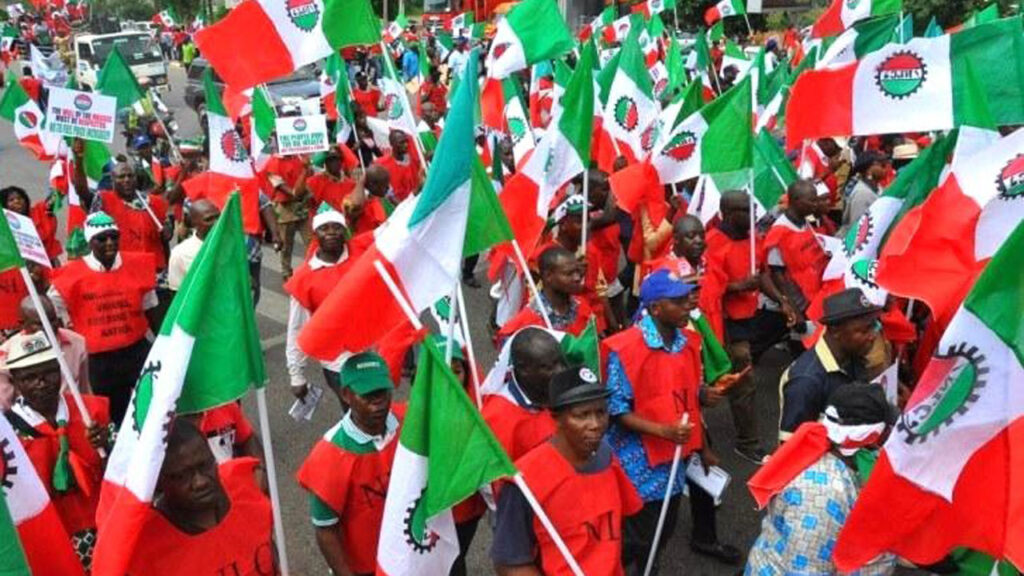The Nigeria Labour Congress (NLC) and federal government employees are calling for an immediate upward review of the national minimum wage, insisting that the ₦70,000 benchmark signed into law last year has been overtaken by economic realities.
Their demand comes after several state governments announced wage increases above the federal threshold in response to rising inflation and soaring costs of living.
President Bola Tinubu had signed the National Minimum Wage Act in July 2024, raising the figure from ₦30,000 to ₦70,000, applicable to workers across all levels of government and the private sector. But with food, rent, transportation, and utility costs climbing steeply, many workers say the figure is no longer viable.
States like Imo, Lagos, Rivers, Bayelsa, Niger, Enugu, and Akwa Ibom have already revised wages upwards, with Imo recently pushing the minimum wage to ₦104,000. Lagos and Rivers pegged theirs at ₦85,000, while others are paying between ₦73,000 and ₦80,000.
Acting NLC General Secretary, Benson Upah, told NAN in Abuja that the situation is worsening by the day. “The truth is that ₦70,000 is not sustainable under the present economic situation. Workers are under immense pressure, and unless the government responds quickly, the crisis of survival will only worsen. We have since engaged the Federal Government on this matter at different times and forums. It is our hope that the government would see both the economic and moral obligations to do so expeditiously,” he said.
Upah noted that while labour prefers dialogue, strike action remains an option if negotiations stall. He also encouraged workers to remain united in the struggle for improved welfare.
High cost of food, electricity, others eroded 70,000 minimum wage – NLC, workers
The President of the Association of Senior Civil Servants of Nigeria (ASCSN), Shehu Mohammed, also applauded state governors who had revised their wage structures, describing their action as a model for the federal government. “Right from the beginning, during the negotiation, our demand was for a living wage, and we submitted ₦250,000 as a reasonable benchmark. We told the government that anything short of that only takes a worker to the gate of the office, not back home,” he said.
Mohammed added that high electricity tariffs, escalating transport fares, and skyrocketing food prices had eroded the value of ₦70,000. “Let’s be realistic. Even if you pay electricity bills out of ₦70,000, what remains cannot sustain a family for 10 days,” he warned. He urged government to pair wage reviews with broader policies on affordable housing, healthcare, and subsidised transportation.
Civil servants who spoke with NAN painted a grim picture of daily survival. Mrs. Kemi George lamented: “By the time I pay transport to work and buy food, nothing is left. Rent and school fees are almost impossible to cover. It is only God that has been sustaining us because our take-home pay is nothing compared to what we spend in a month.”
Another worker, Obi Chimaobi, described the hardship as unbearable. “Things are no longer affordable. A bag of rice is now like gold, transport fares keep rising daily, and with ₦70,000, you are already in debt before the month even ends. The Federal Government must act very fast in reviewing workers’ wages. The federal government must also recognise that reviewing the minimum wage is not merely about appeasing labour unions. It is about restoring dignity to work and reaffirming the social contract between government and the governed,” he said.
For Mrs. Bola Akingbade, the issue is also about productivity. “A well-paid workforce is a motivated workforce,” she said, stressing that better pay would not only improve living standards but also strengthen efficiency and reduce corruption across government institutions.



